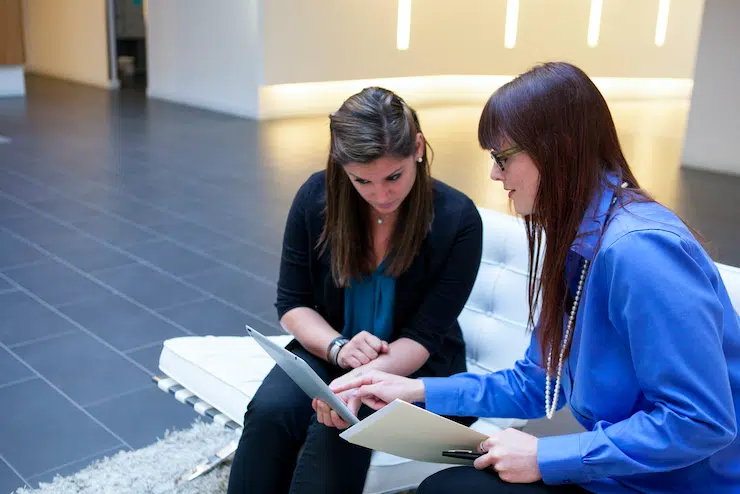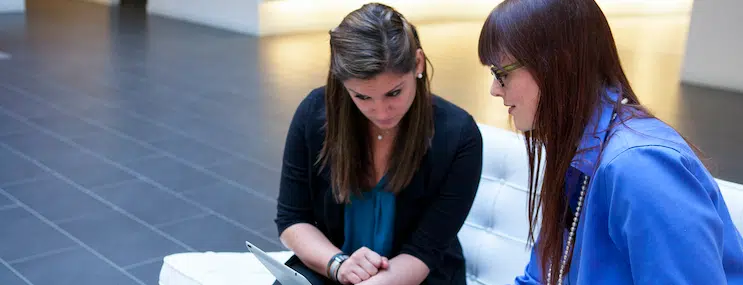Mentoring: An Overlooked Path To Fundraising Expertise


Full Platform Overview Chat With Us



Full Platform Overview Chat With Us





A good friend, Carol Weisman, recently shared a few key thoughts about how she learned to be a top-notch fundraiser and fundraising consultant. Her learning curve has spanned 43 years (and counting, because you literally never stop).
Here were eight pieces of advice:
You’ve probably seen or heard some variation of the first seven before. But finding a great mentor may be something you’ve overlooked or not invested much time in.
Why Find a Mentor?
Real world experience is a vital characteristic of almost every top-notch professional fundraiser. If this is a common characteristic in almost every case, then why not find the best way possible to tap into this experience and learn from it?
A good mentor with experience allows just that to occur!
The right individual, as a mentor, will allow you to garner years – if not decades – of priceless experience through your interactions.
How to Find a Mentor
The best place to start is to tap into your current network. Do you have any current or former co-workers or supervisors who might be good candidates? Asking for a referral or suggestion from more senior members of your organization or others in the nonprofit world also works.
If that doesn’t generate any candidates, look to a gathering of experienced fundraisers in your area. This is where a membership in your local AFP (Association of Fundraising Professionals) chapter, your local state association of nonprofits, or finding a nonprofit incubator/accelerator/co-working space can provide valuable networking opportunities. Some even offer mentoring programs!
Here are a few nonprofit incubators/accelerators listed below to check out in various parts of the country:
Once you’ve joined one or more communities, initiating a conversation to see if day-to-day efforts in fundraising overlap is the next step. If the conversation leads to more discussion, then perhaps you have found your mentor. Most anyone would be flattered if you ask and, depending on his or her current roster of mentees, should react in a favorable manner.
Best Use of a Mentor
This can be a delicate balance. So much depends upon the time the mentor is able to give. Please be respectful of that time. Remember: small amounts of time over several years add up to a wealth of knowledge gained!
Hopefully, face-to-face meetings over a meal or coffee can lay the groundwork for future in-person meetings as well as phone calls and emails. Just let your conversations with your mentor drive the amount of time and type of meetings, which feel right for both of you.
Some obvious topics are fundraising best practices, situations to avoid, proper goal setting, staffing, vendors, technology and, of course, personal growth.
Some mentoring relationships span years and years and remain ongoing throughout careers. Keep in mind no two are identical just like most other deeply personal relationships.
Part of an Overall Education Program
A mentor relationship can be one of the most satisfying portions of a well-rounded professional fundraising education program. No matter what your budget size is, please strive for various avenues of additional knowledge. There are an unlimited amount of free resources online, and likely a worthwhile event in your city every week, if not sooner.
Don’t Forget: Someone Might Need You as a Mentor
My friend Carol, on her blog, told the story of her paying it forward and becoming a mentor:
Meanwhile, I have been mentoring an emerging speaker. I met her while work with a battered women’s shelter. She is a board member of the shelter. She has a powerful story to tell. We’ve worked together to craft her story. The first time she told it to the board, she got a standing ovation. The first time I got a standing O, I’d been speaking for three years! My mentor used to tell me “You’ve done well little grasshopper.” My little grasshopper has wings.
You don’t have to be a legendary expert to be a mentor. Someone out there might need you, so be willing!
Finding a great mentor may be just what you need to go from being a good fundraiser to being a great one. Do you have a mentor, or are you mentoring someone else? Let me know in the comments below!

Comments